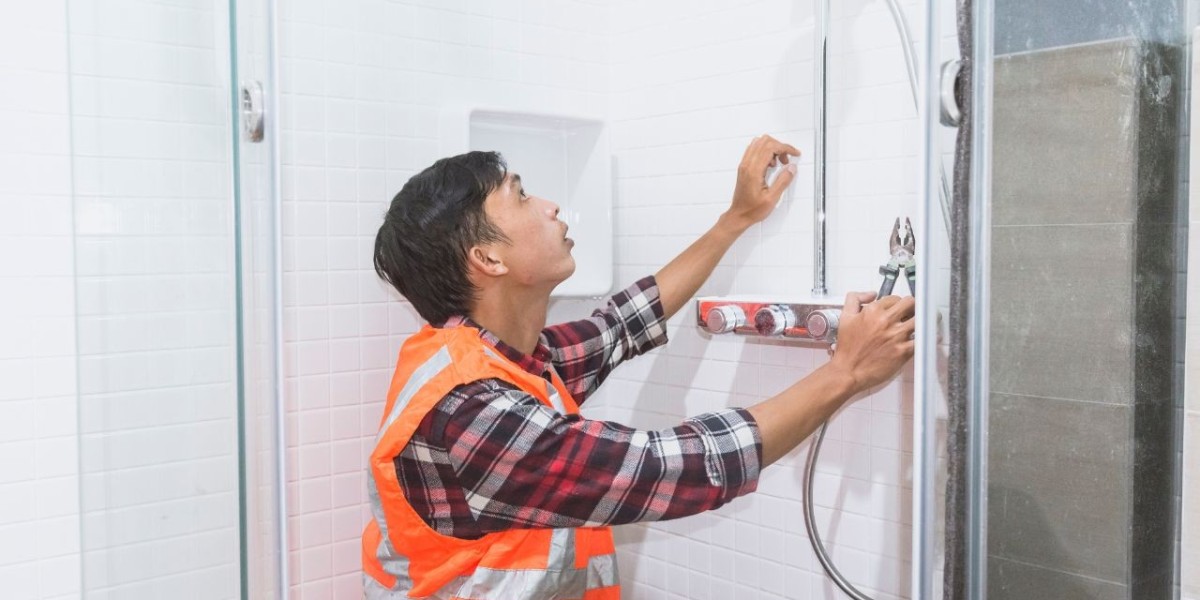Understanding the culprits behind these leaks empowers you to take proactive measures and keep your bathroom oasis in tip-top shape. So, grab your metaphorical wrench (or phone to call a plumber!), and let's delve into the most common causes of water leakage in bathrooms.
Worn-Out Seals: The Silent Culprits
Imagine a party where the guests (water) are supposed to stay within designated areas (fixtures). Seals are the bouncers at this party, ensuring water stays put. But, like any bouncer who's been working overtime, seals around your toilet, sink, bathtub, and shower can deteriorate over time. This deterioration can be caused by:
- Age and wear: Rubber seals naturally lose their elasticity over time, making them less effective at creating a watertight barrier.
- Harsh chemicals: Cleaning products containing harsh chemicals can break down the seals, accelerating their demise.
- Improper installation: If the seals weren't installed correctly during bathroom renovations, they might not create a proper seal from the start.
Signs of leaking seals:
- Visible water stains around the base of your toilet, sink, or bathtub.
- A spongy feeling under the toilet or sink base.
- An unpleasant odor emanating from the bathroom, potentially indicating mold growth.
The Fix: Replacing worn-out seals is a relatively simple and affordable repair. For basic tasks, a handy DIYer might be able to tackle this themselves. However, for more complex repairs or to ensure a professional job, consider contacting a qualified plumber.
Damaged Pipes: The Hidden Threats
Think of the pipes in your bathroom as the lifeblood of your plumbing system. They carry water to and from your fixtures, but just like any vein or artery, they're susceptible to damage. Here's what can cause leaky pipes:
- Corrosion: Metal pipes, particularly copper, can corrode over time due to exposure to water and minerals.
- Freezing temperatures: If water in the pipes freezes and expands, it can cause cracks or bursts in the pipes. This is more common in colder climates.
- Improper installation: Pipes that weren't installed correctly might have weak points or loose connections, leading to leaks over time.
Signs of damaged pipes:
- Unexplained puddles of water on the bathroom floor, especially beneath fixtures.
- Low water pressure coming from your faucets or showerhead.
- Noticeable rust or corrosion on visible pipes.
- A banging noise within the walls when you turn on the water.
The Fix: Damaged pipes require immediate attention. Depending on the severity of the damage, a plumber might be able to repair the existing pipe or recommend replacing a section or the entire piping system.
Loose Connections: The Unseen Weaknesses
Every good plumbing system is built on strong connections. But connections, like friendships, can weaken over time. Here's why bathroom fixture connections might leak:
- Settling of the building: As buildings age, they can settle, which can cause connections between pipes and fixtures to loosen.
- Improper tightening: During installation, if the connections weren't tightened sufficiently, they might leak over time.
- Normal wear and tear: The constant movement of turning on and off faucets can cause connections to loosen slightly.
Signs of loose connections:
- Dripping water around the base of your faucet or showerhead.
- A hissing sound coming from the connection point.
- The ability to wiggle the faucet or showerhead slightly.
The Fix: Tightening loose connections is a relatively simple task for a DIYer. However, be cautious not to over-tighten, as this can damage the connection or the fixture itself. If you're unsure, it's always best to consult a plumber.
Dealing with water leaks in your bathroom? Allseal Waterproofing offers a reliable bathroom water leakage repair service to fix leaks quickly and effectively. Bathroom leaks can cause significant damage to floors, walls, and even the structure of your home if left untreated. Our team of experts will locate the source of the leak and provide a long-lasting solution.
Whether the issue is due to faulty plumbing, cracked tiles, or poor waterproofing, we use high-quality materials and proven techniques to ensure the problem is resolved. Don’t let a minor leak turn into a major repair—trust our bathroom water leakage repair service to restore your bathroom to its original condition and prevent future water damage.
Cracked Tiles and Grout: The Infiltration Points
Your bathroom tiles and grout create a beautiful and water-resistant barrier. But even these valiant defenders can succumb to wear and tear:
- Cracked tiles: Cracks in the tile itself can allow water to seep through the grout and subflooring.
- Deteriorated grout: Over time, grout can become porous or crack, allowing water to penetrate.
Signs of cracked tiles and grout:
- Visible cracks in the tiles or grout.
- Water stains on the bathroom floor, especially around the base of the shower or bathtub.
- Mold or mildew growth between the tiles.
The Fix: Cracked tiles and grout can be repaired by a professional tile setter. However, if the damage is extensive, it might be more cost-effective to replace the entire tiling.
Clogged Drains: The Silent Blockages
Drains, like arteries, can become clogged with debris, leading to water backup and potential leaks. Common culprits include:
- Hair: Hair can accumulate in drains, especially those in showers and sinks.
- Soap scum: Soap residue can build up and clog drains over time.
- Mineral deposits: Hard water can leave mineral deposits in drains, leading to blockages.
Signs of clogged drains:
- Slow-draining water.
- Water backing up into the bathtub or sink.
- Gurgling sounds coming from the drain.
The Fix: For minor clogs, a plunger or a commercial drain cleaner might be effective. However, for persistent clogs or if the drain is completely blocked, a plumber will need to snake the drain to remove the obstruction.
Conclusion
Water leakage in bathrooms can be a frustrating and costly problem. However, by understanding the common causes and taking preventative measures, you can minimize the risk of leaks and keep your bathroom in top condition.
Remember, if you suspect a leak or are unsure how to address a plumbing issue, don't hesitate to consult a professional plumber. They can diagnose the problem accurately and provide the most effective solution. With proper maintenance and attention, you can enjoy a leak-free bathroom for years to come.








